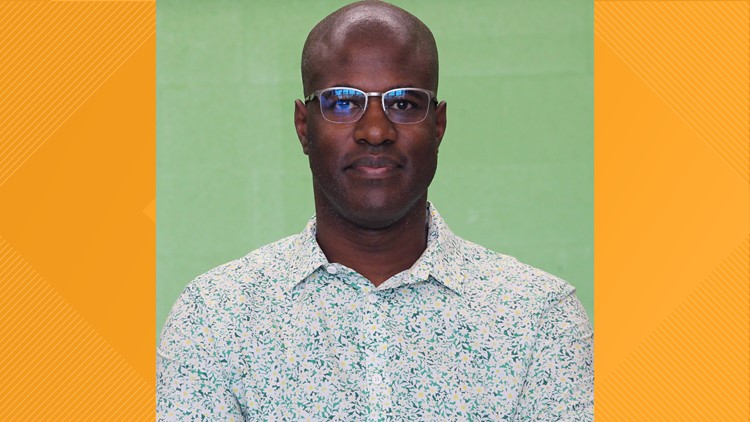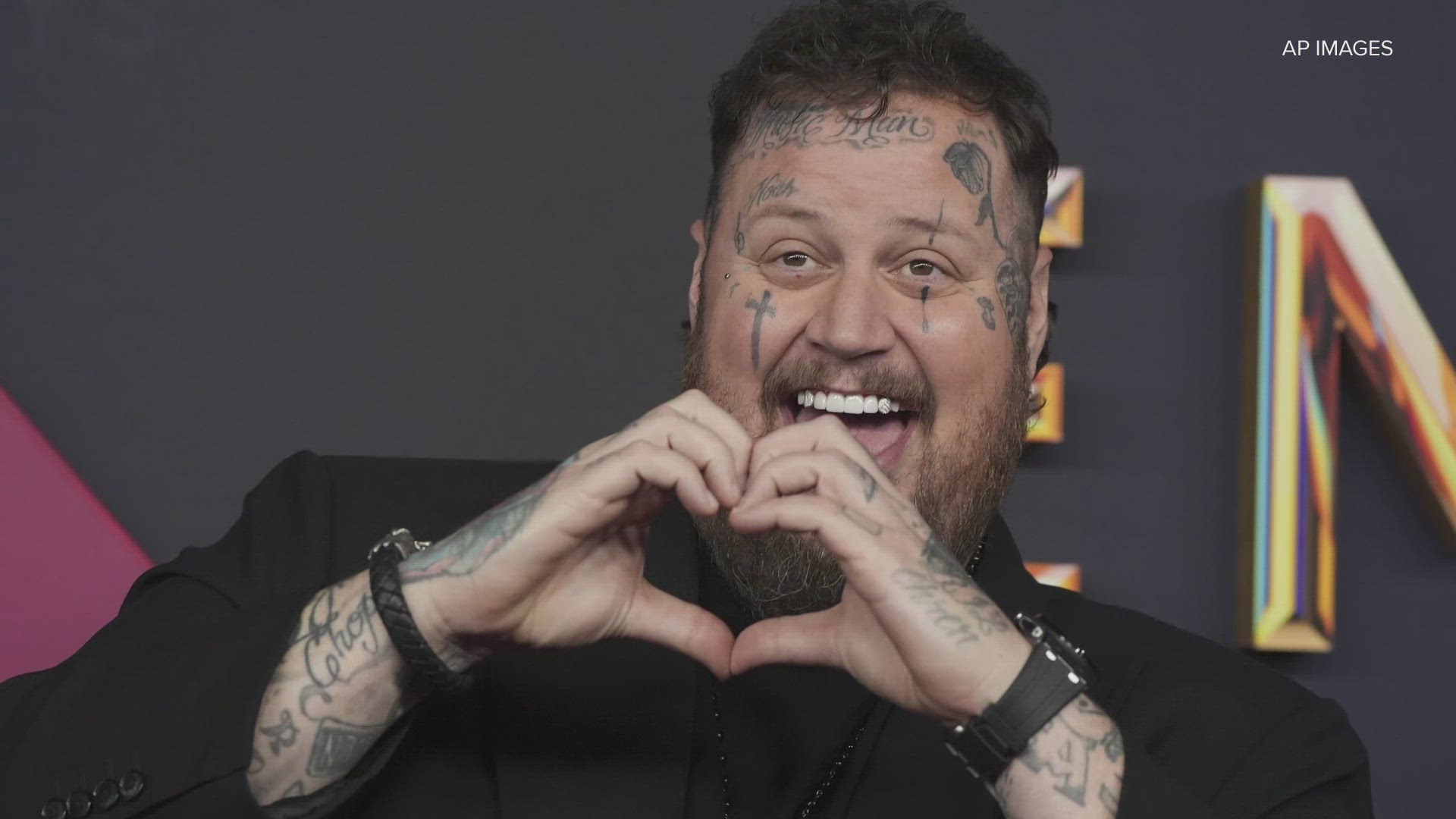ST. LOUIS — Once upon a time, director Mobolaji Olambiwonnu walked into a fish fry establishment in Ferguson in pursuit of a meal. The UCLA graduate had just been turned down by the Michael Brown family for comment on a documentary he was working on. The last person he thought he would run into was Michael Brown Sr. But sometimes fate spins the bottle in our favor, allowing us the fortune to tell powerful and important stories.
What he ended up getting was the most important piece in his puzzle to make a vital movie. As he would put it, "finding purpose in the pain of loss." It was that simple coincidence, and the following conversation, that really paved the way for Olambiwonnu to make "Ferguson Rises," a film debuting tonight via Tribeca At Home Film Festival and one that should create some conversation around the incident that happened in the small city in St. Louis gave the county a black eye and sparked the Black Lives Movement. I had the chance to speak with the director this week, and found him to be highly insightful and driven.
When Michael Brown Jr. was shot and killed by Officer Darren Wilson nearly seven years ago, it set off a fever pitch in Ferguson that embroiled community leaders, the police, and regular citizens in protests, violence, and a whole new form of disarray. Many years and injustices later, Olambiwonnu wanted to get every perspective he could, a mission that started with a pregnant woman and an urge he couldn't turn off.
"The moment when my wife was pregnant with my son was the moment that propelled to say, 'I have to make this movie'. Trayvon Martin had happened two years earlier, and that really struck an emotional chord with me," Olambiwonnu said. "I remember asking my parents if they had done anything during the civil rights era and when they told me they hadn't done anything--that wasn't very satisfying to me."
He knew that one day, his own son would come to him and ask him about the actions he took to reconcile the Black Lives Movement, and all the young lives lost in its plight.
"He would ask me what I did at this crucial moment in history and I did not want the answer to be nothing. That ultimately propelled me to make this film," Olambiwonnu said.
This isn't a one-sided experience. Olambiwonnu brings in a number of voices to the fray, including faces from both sides of the protest debate. There were community leaders who were against it, especially with the entire country watching and the damage being done. By getting multiple perspectives, he really carved out a dual-sided tale that serves each side of the story.
Thanks to the Tribeca At Home Virtual Festival, everyone from Ferguson who played a part in the making of this movie can see it, an advantage over recent Tribeca festivals where everything was screened in person in New York. This way allows a broader scope, exposure that Olambiwonnu cherished.
"It's beautiful. I had always hoped to get back to Ferguson to screen the film. But based on COVID-19 and everything else, that was really complex--so the fact that they can see it, and that we can all watch it at the same time, is as close to a National screening as we'll get," he said.
Every film, documentary or feature film, has hurdles. Trials and tribulations that get in the way. For Olambiwonnu, it was simple: money, and how to raise enough of it.
"Money is the #1 hurdle. You start shooting and then you run out of money-and then you try to find more money and shoot again. As a first time documentarian without a track record, it's difficult to go out and get easy money, so a lot of the money had to be raised: gracious donations from people who really cared about the project and what we were doing, and a lot of my own money."
But a plan is also important when conceiving a documentary, something he and the crew found out the hard way when they rushed out to Ferguson immediately. Then again, they didn't have much choice.
"Given what happened and the urgency of things, the only choice was to run out and get what we could. Not knowing anybody in St. Louis also made it difficult. So, all the relationships you see in the film had to be built on the ground, which was unlike some documentaries where those things are in place," he said.
One of those relationships happened to be Michael Brown Sr., but it wasn't a set meeting.
"I met (him) at a fish fry place. We were trying to get in touch with him and we couldn't. If it weren't for me and my crew being at a fish fry place and him walking in at that moment, we wouldn't have him in the movie, because his team refused our interview... right after I did the actual interview with him. So, it was kind of ironic."
As Olambiwonnu puts it, this movie was constructed on top of one miracle after another, as he and his team would run into Michael Brown's cousin soon after the chance meeting with his dad. Sometimes, the best films come together on the grounds of luck-but the actual heart and direction of "Ferguson Rises" evolved over the shoot.
At first, Olambiwonnu wanted to tell the perspective of the protestors, but that soon changed as his team got more integrated in the community.
"I realized we needed some counter-balance, so I began to integrate some of the other voices in there. I felt that it would give us a more well-rounded perspective and a connection to the humanity of each person involved," Olambiwonnu said. "What's missing in these arguments is the connection to each other's shared humanity. Whether or not we agree with people, seeing their perspective helps us connect with each other."
If there was a central goal, it wasn't cracking the case of the crime. Olambiwonnu wanted to show that the community as a whole, in their own methods and actions, had a commitment to Ferguson and making sure it survived and remained whole.
"I wanted to show that they all shared this common interest in having a better community and having a better society for their children. Instead of just seeing the things that disconnected us, I wanted them to see the things that connected us as well," he said.
When I asked him what message that audiences should take away from the film, Olambiwonnu didn't hesitate for a second.
"For me, it's finding purpose in the pain. That's the universal message. When we look at Michael Brown and the citizens of Ferguson, they are trying to make meaning out of chaos. I wanted my son to be left with that message when he's old enough to watch this movie. After 400 years of dealing with racism and oppression in this country, there's resilience and there's a commitment to finding purpose in the pain."
Many years ago, at the dawn of his pending fatherhood, Mobolaji Olambiwonnu decided to make a movie for the best reason: informing and caring for the history and future of a world his son was preparing to enter. A film that could connect people from each side of the debate, with the hope of bringing the anger and rage to a simmer and planting seeds of growth instead.
It took some luck... along with some fried fish and McDonalds, but the job was done. The mission may not be ever finished yet, but "Ferguson Rises" stands on a platform of hope, and not just pain. It's a start, one that all started with a man's promise to his unborn son.
Find tickets to the 6 p.m. screening of the film, via Tribeca at Home, right here.



